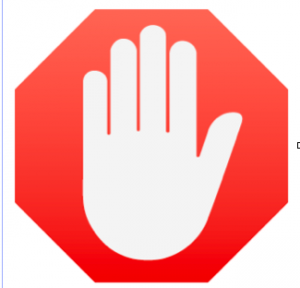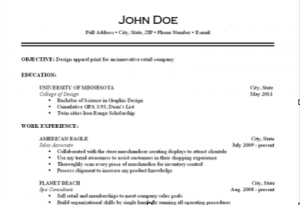How to End the Adblock Arms Race
- At March 25, 2016
- By rbadmin
- In Blog
 0
0

Everybody hates ads on the Internet. Even advertising and marketing professionals hate ads on the Internet if they’re too intrusive.
So there’s a huge market for adblocking software such as Adblock Plus, which anyone can download for free. Adblock Plus advertises itself with an irresistible line. “Surf the web without annoying ads!”
Who isn’t in the market for that? Anyone? Raise your hand if you like annoying ads on the Internet.
Yeah, we didn’t think so.
Ads are necessary, though, and almost everyone understands why. It’s how online content providers make money. No ads, no money. So content providers are now blocking ad-blocking software.
Forbes magazine, for instance, is current blocking browsers with an ad blocker enabled. Instead of the magazine’s articles, the following message appears on the homepage: “Thank you for visiting Forbes. We noticed that you have an ad blocker enabled. Please disable it, or whitelist Forbes.com, to enter our site and receive an ad-light experience for the next 30 days.”
Forbes if an outstanding magazine. It wouldn’t be able to publish any content at all if it did not pay its writers. That money has to come from somewhere. If it doesn’t come from advertising revenue, it will have to come out of your pocket directly if you want to read the magazine.
But everybody hates annoying ads on the Internet, so companies like Adblock Plus will soon figure out how to get around the ad-blocker blockers.
It’s a classic arms race. No side ever wins once and for all, which is one reason why advertising and marketing professionals shouldn’t freak out about it.
The most recent freakout occurred when Apple announced it will allow ad-blocking extensions in its mobile browsers on devices using iOS 9. It’s giving ad-blockers the upper hand temporarily, but the ad-blocker blockers will come up with a workaround soon enough.
The solution here is to figure out how everyone can win, and it should not be that difficult. We should start by identifying the root of the problem. Adblock Plus put its finger on it. Its marketing slogan, again, is “Surf the web without annoying ads!”
The key word in that sentence is annoying. If ads weren’t annoying, no one would go out of their way to block them.
Ads aren’t annoying just because they’re ads. They’re annoying when they pop up and get in your way. They’re annoying when they take so long to load that the website you’re visiting hangs. They’re annoying and creepy when you can tell you’re being tracked everywhere you go on the Internet.
Otherwise, ads are no problem.
“Irritation is a persistent theme in writings about ad blocking,” writes Justin Fox at Bloomberg. “It is often attributed to the way advertisers track consumers across the Internet, clogging up their browsers, invading their privacy and sometimes just creeping them out.”
If none of that were happening, we’d be having an entirely different conversation about adblocking. We might not be talking about it at all.
Adblock Plus is trying to find a third way. Its creators understand that advertising has its place and a positive role to play in all of our lives, not only because consumers want to know what products and services are available, but also because advertising helps pay for the content we love on the Internet. So Adblock Plus goes ahead and whitelists ads that adhere to strict anti-irritation standards while blacklisting everything else.
Advertising and marketing pro Doc Searls thinks that’s not quite good enough because Adblock Plus makes no distinction between tracking and non-tracking ads. His proposal is a little more detailed and will probably be a lot more effective.
“The simplest way to end to the adblock war,” he writes, “is for non-tracking-based ads — the safe Madison Avenue kind — to carry a marker that ad blockers can whitelist… I also suggest that ad blockers call themselves adtech blockers, so it’s clear that the user’s problem is with the online equivalent of junk mail, and not with the kind of advertising that has supported commercial media for the duration.”
Will it work? Who knows? But a truce of some kind is probably coming. No one can ever win an arms race, but if we can come up with a formula where advertising pays for content on the web without being annoying, everyone wins.
How to Ace a Job Interview
- At March 18, 2016
- By rbadmin
- In Blog
 0
0
Job interviews stress everyone out, but preparing yourself materially and psychologically will go a long way toward making you feel better about the experience and boosting your odds of success.
Prepare. Make a list of typical interview questions and likely questions and write down your answers. Edit your answers and polish them until you get them exactly right. Then read your answers out loud over and over and over again.
The purpose here isn’t to memorize a fragmented speech one paragraph at a time. In fact, you’re better off not memorizing your answers because the questions you actuall get are likely to differ somewhat from your practice questions. You don’t want to come across like a robotic politician with rehearsed talking points.
The purpose of this exercise is to focus and organize your thoughts in advance so you won’t have to figure out what you want to say when you’re on the spot.
Ask Your Own Questions. Be sure to also write down some of your own questions in advance and ask them during the interview. Make sure they’re the kinds of questions that aren’t likely to come up in conversation until you ask.
This may not seem important, but it is for a couple of reasons. The last thing you should want is a job that you’ll hate, so you need to make sure it’s a good fit for you. If you learn from asking the right questions that it’s not going to work, consider yourself lucky. It’s far better to wait for the right job than to take one that will make you miserable. Remember, you’re going to work there for at least for a couple of months and probably for a couple of years.
If, on the other hand, you learn from your questions that the job is a good fit, that will come across. The interviewer will notice. You will seem—and be—more genuinely interested and engaged that most interviewees who just passively sit there.
Relax. Few people are truly relaxed during a job interview, but you’ll be a lot less stressed if you keep a couple of things in mind.
You are not on trial. Job interviewers are on your side. They need you, they want to hire you, and they’re predisposed to like you. They wouldn’t have called you and set up an interview in the first place if they thought you were wrong for the job.
They also expect you to be nervous. Everyone is nervous during job interviews. They’re just people. They’ve been interviewed, too. They know what it’s like. And you might be surprised by how many employers are nervous while they’re asking you questions.
So don’t fight the anxiety. That only makes it worse. Just let it be there. Don’t worry if you think you look nervous. You’re probably hiding it better than you think, and even if you aren’t, so what? No employer will ever hold it against you.
Be Yourself. This is the hardest part for some people. We want to make a good first impression and often feel like we need to present a superhuman version of ourselves. That makes a lot us nervous, but coming across as a braggart and phony is even worse.
Do this instead. Imagine you’ve been on the job for six months. You know everybody in the office. You see them at lunch and occasionally after hours. You’re good at your job because you’ve been doing it for a while now. Spend some time imagining how it would feel to be completely comfortable with everything and everyone. You’re only pretending for now, but if you’re hired, you’ll feel that way for real after a while. You know this is true because it has happened at every job you’ve ever had in your life.
Here’s a secret: there is a part of your brain that makes no distinction between things that are real and things that are imagined, and that part of your brain is partly responsible for your emotional state. It’s why horror movies are scary even though we know they’re not real.
Actors and actresses use this in their craft. They can imagine a gut-wrenching scene, or remember something tragic that has happened to them in real life, and make themselves cry. They are feeling genuine sadness when they do this.
Positive emotions can be conjured the same way. You can make yourself feel confident and at ease just by imagining yourself confident and at ease. So think of your interview as an acting performance. You’re sort of playing a role, but not really. You’re playing yourself. You’re playing yourself in the future, after you’re comfortable with the job and comfortable with your boss and comfortable with your co-workers.
Do this, and the interviewer won’t see a nervous version of yourself or a puffed up version of yourself, but the real you, the actual person they’ll work with every day after you’re hired and get settled in. You will come across as authentic because you will be authentic. You’ll exude confidence and competence, and you’re more likely to get hired.
How To Create a Stand Out Resume
- At March 04, 2016
- By rbadmin
- In Blog
 0
0
 If you’re one of 100 people applying for a job, your resume had better be good. You need to format it correctly, of course, but that’s the easy part. The hard part is distinguishing yourself from the other 99 applicants.
If you’re one of 100 people applying for a job, your resume had better be good. You need to format it correctly, of course, but that’s the easy part. The hard part is distinguishing yourself from the other 99 applicants.
It’s not as hard as it seems, though. It just takes a little more work.
Include accomplishments
Don’t just list your job duties under your job title. Make sure you list your accomplishments. For example, in addition to saying you were in charge your company’s social media marketing, tell your prospective employer that you increased the number of social media followers by 50 percent over a year.
If your accomplishments are hard to quantify with hard numbers, list the ways you went above and beyond. Perhaps you were a marketing manager who wasn’t afraid to dive in and create content yourself. Or you were a marketing content developer who stepped up and mentored new employees.
A lot of people have a hard time with this, but if you spend some quality time thinking hard and brainstorming, you’ll figure out how to distinguish yourself from everyone else who spent the last couple of years in the exact same job. And you’ll stand out when you do.
Create more than one resume
If you’re applying for similar but different jobs, don’t send the same resume to every employer.
Let’s say you’ve spent the last four years as a copywriter and social media marketer and did occasional project management on the side. And let’s say you’re applying for all three types of jobs at the same time. The three versions of your resume won’t be very different, but they should be a little bit different.
Your social media resume should include as many social media accomplishments as possible. Your copywriter resume should include as many copywriting accomplishments as possible. And your project management resume should emphasize project management as much as possible.
The easiest way to create three slightly different resumes is to start with one master resume that includes every single accomplishment you can think of at every single job. You won’t actually send that resume to an employer. You’ll use it to create smaller and more focused resumes tailored to the specific jobs you’re applying for. When you do that, you’ll look like you fit the job you’re applying for like a key in a lock.
Include a cover letter
Ninety percent of job applicants don’t write a cover letter, so if you include one you’ll stand out from the pack before anyone even reads it.
Ninety percent of job applicants who do include a cover letter use the same cover letter every time. Boilerplate letters are obviously boilerplate letters, so you’ll stand out from the pack again if you write an original letter that’s focused like a laser on the job you’re applying for.
Yes, it takes time to write a new cover letter every time you fire off a resume. It takes a lot of time, actually, and you might be able to apply for only one or two jobs per day instead of ten. So what? You’ll probably find a job faster. And you’re more likely to find a job that you like because you’ll be pickier about what you go after.
Try to fit everything on one page
You can write a two-page resume if you want or if you need to. Go ahead. Despite what some people think, two-page resumes are normal now.
If you can fit everything onto one page without cramming it in there with a tiny font, though, you’ll stand out. The reason you’ll stand out is because there will no fluff and no filler. Every line will be relevant. If you’re a stickler about listing accomplishments instead of just job descriptions, every line will pack a punch. No one’s eyes will glaze over when they take a look at it.
Don’t pay someone to do it for you
People who write resumes for a living often suck at it. They shouldn’t. It’s their job. But the folks in human resources departments are sometimes appalled at what lands on their desks.
Former human resources pro Allison Green put it this way at her popular blog, Ask a Manager: “[Y]ou can’t just assume that because someone hung out a shingle, they’re good at it. And to vet effectively, you need to have some basis for judging, which means you need to put in the work to educate yourself about what a good resume looks like … which might get you to the point where you can do it yourself anyway.”
If you take the time to do it right and do it yourself, you’ll save time, you’ll save money, and you’ll get hired faster. Put in the work and you shall be rewarded.

